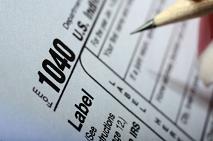 Innocent Spouse Relief, Form 8857. There may be circumstances that your client can seek relief from the payment of income tax, interest and penalties by claiming “Innocent Spouse”. To file this claim, your client needs to fill out IRS Form 8857. Your client is not responsible to calculate the amount of tax that may be relieved as the IRS will perform this calculation.
Innocent Spouse Relief, Form 8857. There may be circumstances that your client can seek relief from the payment of income tax, interest and penalties by claiming “Innocent Spouse”. To file this claim, your client needs to fill out IRS Form 8857. Your client is not responsible to calculate the amount of tax that may be relieved as the IRS will perform this calculation.
To qualify for Innocent Spouse, the IRS provides the spouse must prove the following factors:
- The taxpayer filed a joint return which has an understatement of tax due to erroneous items of your spouse (or former spouse).
- The taxpayer establishes that at the time he or she signed the joint return they did not know, and had no reason to know, that there was an understatement of tax.
- Taking into account all the facts and circumstances, it would be unfair to hold the taxpayer liable for the understatement of tax.
- A request for innocent spouse relief will not be granted if the IRS proves that the taxpayer and their spouse (or former spouse) transferred property to one another as part of a fraudulent scheme. A fraudulent scheme includes a scheme to defraud the IRS or another third party, such as a creditor, ex-spouse, or business partner.
If granted, the IRS can only collect the tax, interest and penalties from the other spouse or former spouse. However, one significant factor regarding whether a spouse will qualify for Innocent Spouse relief is whether a significant benefit was bestowed on that spouse. The IRS defines a significant benefit is any benefit in excess of normal support. Normal support depends on the spouse’s particular circumstances. Evidence of a direct or indirect benefit may consist of transfers of property or rights to property, including transfers that may be received several years after the year of the understatement.